Program now encompasses students studying in such areas as mechanics, fire science and other trades who were not covered by the College’s 2017 free tuition plan
 In a June 15 press release, Yavapai Community College announced that it was expanding student tuition free opportunities via a program it calls “Workforce Promise.” The new program expands free tuition to eligible students studying in many more areas than it did when it first began offering free tuition in its “YC Promise” program back in 2017.
In a June 15 press release, Yavapai Community College announced that it was expanding student tuition free opportunities via a program it calls “Workforce Promise.” The new program expands free tuition to eligible students studying in many more areas than it did when it first began offering free tuition in its “YC Promise” program back in 2017.
Of significance, is that beginning in the fall 2022, the Community College will now offer students, of any age, the chance to earn a two-year degree in a variety of trades, tuition-free.
The Workforce Promise program covers students seeking degrees in the following fields:
Associate of Arts Elementary Ed.
Associate of Business
Associate of Science
Accounting
Agriculture Technology Mgmt.
Applied Pre-Engineering
Automotive Technology
Computer Networking Technology
Electrical & Instrumentation Tech.
Fire Science
Graphic Design
Management
Nursing
Paralegal Studies
Radiologic Technology
Viticulture and Enology
Among several requirements for the program is one that declares that those in the tuition free program must complete their degree program in seven semesters.
The College says that the Workforce Promise program is available for new students, enrolling for the Fall 2022 Semester, as well as qualifying first-year YC students. It also says that students must enroll through the Community College Promise Portal, meet regularly with advisors, maintain at least a 2.0 grade average and graduate within the stipulated time frame. The reimbursement covers direct tuition costs up to sixty-one credits. It will be awarded after degree completion, and cannot include any non-YC classes, transfer credits, developmental or re-taken courses. For a full list of eligibility requirements, please visit the YC Promise website.
There is a deadline for application to this program. Students wishing to apply for the Workforce Promise must opt-in through the Community College Promise Portal by Monday, August 1. Additional information can be obtained by visiting: yc.edu/promise
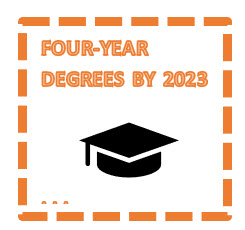 In a press release authored by Yavapai Community College reporter Tyler Rumsey on September 30, 2021, it was announced that the College has set up a process to bring four-year degrees to its campuses and centers. The release said a formal working group has been created and already established a tentative timeline for the first four-year degree to be available to Yavapai students by the fall of 2023.
In a press release authored by Yavapai Community College reporter Tyler Rumsey on September 30, 2021, it was announced that the College has set up a process to bring four-year degrees to its campuses and centers. The release said a formal working group has been created and already established a tentative timeline for the first four-year degree to be available to Yavapai students by the fall of 2023.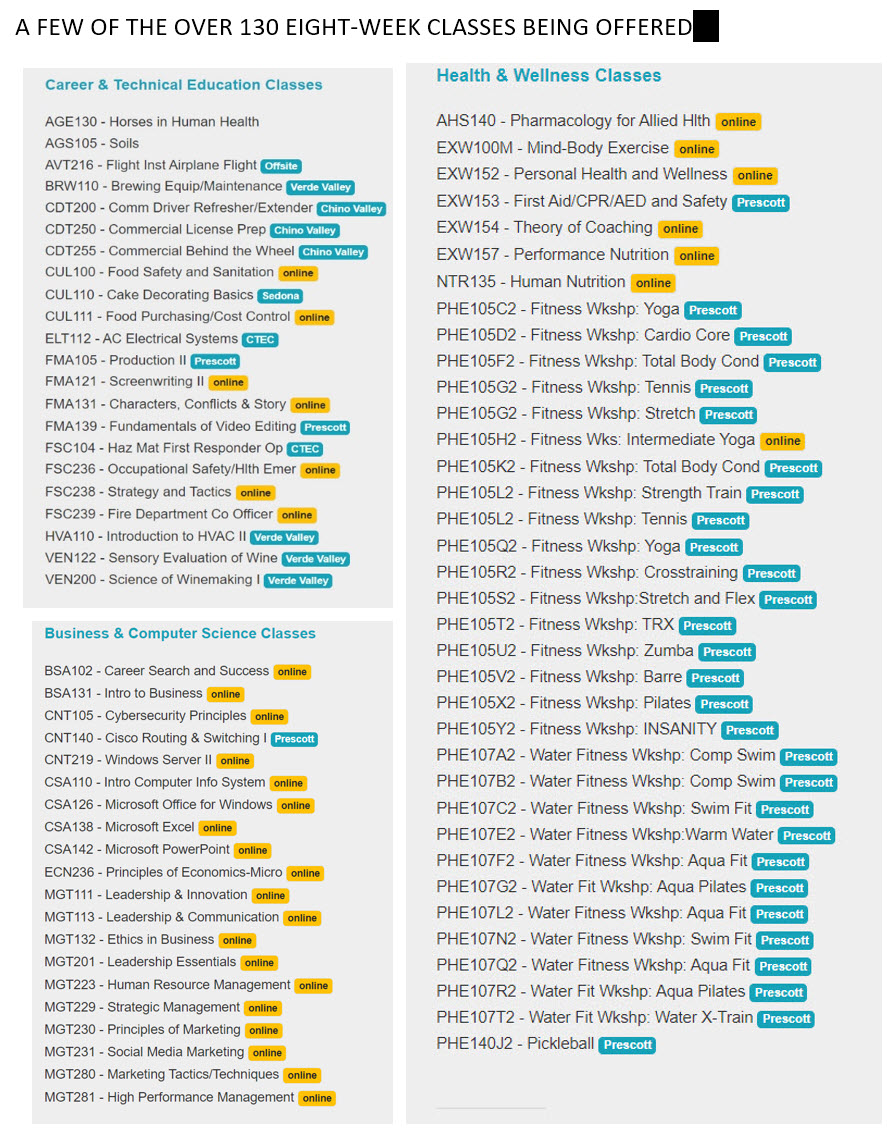
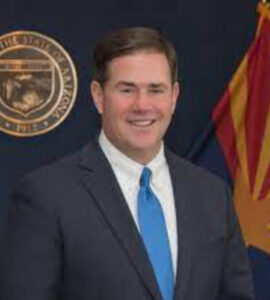
 Monday, August 17. At that time, it is estimated that about 30 percent of the classes will be face-to-face.
Monday, August 17. At that time, it is estimated that about 30 percent of the classes will be face-to-face.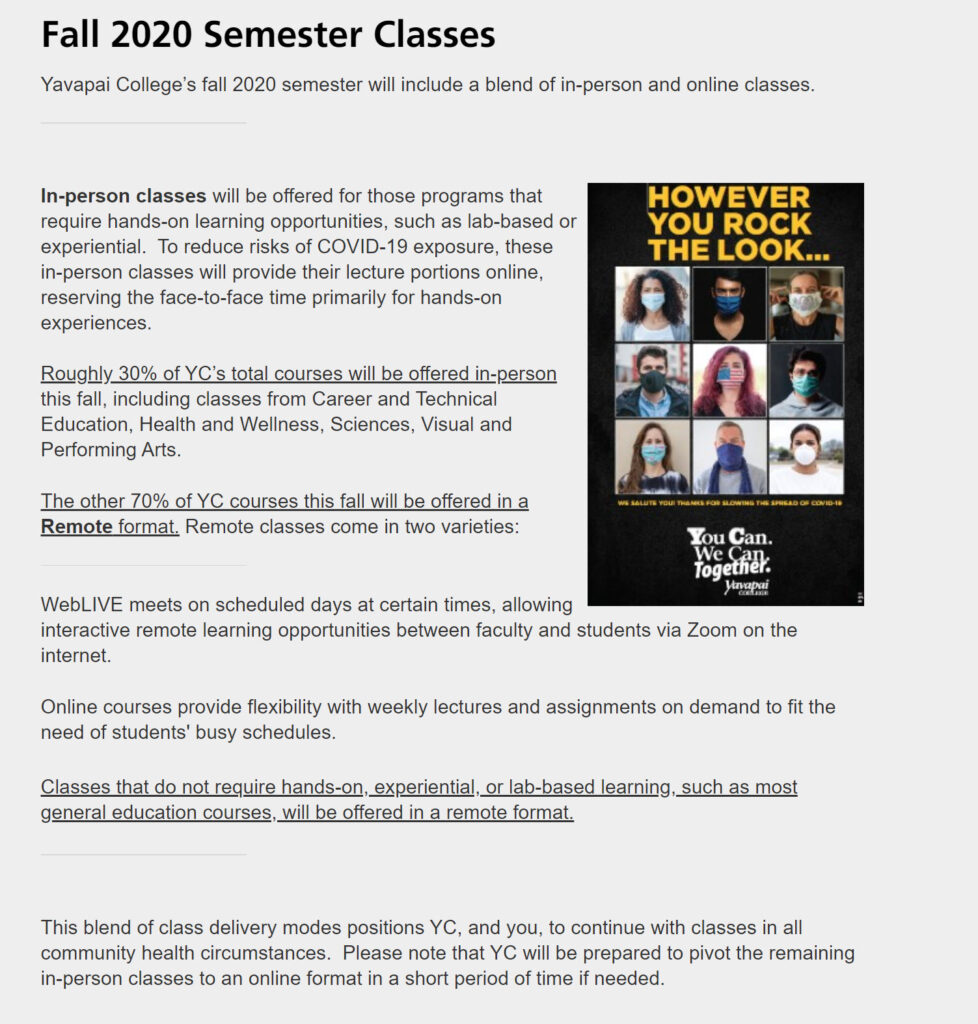
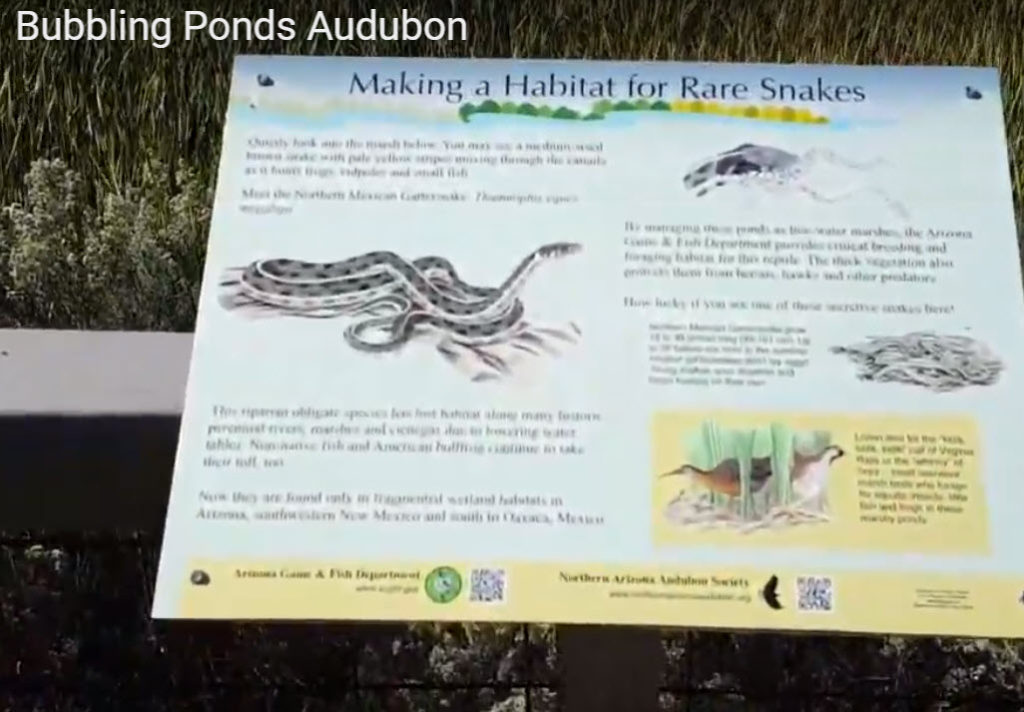
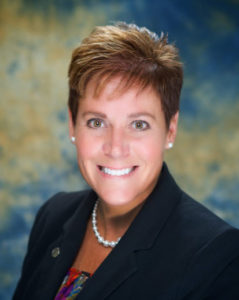 Community College President Dr. Lisa Rhine explained in a written message to the faculty that she is going to address the culture, health and strategic direction of the College in the coming months. To help her accomplish those objectives, she is searching for a Vice President of Strategic Initiatives. This person will be responsible for improving and enhancing the online experience, improving enrollment management, expanding an Open Education Resources initiative, developing the learning core, and for leading the College’s Organizational Health strategies.
Community College President Dr. Lisa Rhine explained in a written message to the faculty that she is going to address the culture, health and strategic direction of the College in the coming months. To help her accomplish those objectives, she is searching for a Vice President of Strategic Initiatives. This person will be responsible for improving and enhancing the online experience, improving enrollment management, expanding an Open Education Resources initiative, developing the learning core, and for leading the College’s Organizational Health strategies.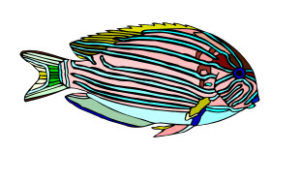 avapai Community College aquaculture science students at the Chino Valley Center are raising and studying razorback suckers, humpback chub and bonytail chub. All three are native to Arizona waterways and endangered because of the passive introduction of non-native fish and other environmental hazards. The fish began arriving at the Center in November 2018.
avapai Community College aquaculture science students at the Chino Valley Center are raising and studying razorback suckers, humpback chub and bonytail chub. All three are native to Arizona waterways and endangered because of the passive introduction of non-native fish and other environmental hazards. The fish began arriving at the Center in November 2018. Yavapai Community College shows little creativity in its educational design. This is especially true when you see the months it is closed down with no students on campus. For example, the fall-winter break for students runs from December 14 to January 14.
Yavapai Community College shows little creativity in its educational design. This is especially true when you see the months it is closed down with no students on campus. For example, the fall-winter break for students runs from December 14 to January 14. 
